

 As we celebrate his birthday, it is easy to forget that Rev. Martin Luther King Jr. was a democratic socialist.
As we celebrate his birthday, it is easy to forget that Rev. Martin Luther King Jr. was a democratic socialist.
In 1964, accepting the Nobel Peace Prize in Oslo, he observed that the United States could learn much from Scandinavian “democratic socialism.” He often talked about the need to confront “class issues,” which he described as “the gulf between the haves and the have-nots.”
In 1966 King confided to his staff:
“You can’t talk about solving the economic problem of the Negro without talking about billions of dollars. You can’t talk about ending the slums without first saying profit must be taken out of slums. You’re really tampering and getting on dangerous ground because you are messing with folk then. You are messing with captains of industry. Now this means that we are treading in difficult water, because it really means that we are saying that something is wrong with capitalism.
» Read more about: Martin Luther King Jr. on the Haves and Have-nots »


As this country hurtles into a New Year, I am grateful for the stop sign at Martin Luther King Jr.’s national holiday. It offers time for me to consider again the meaning of my life as well as to our national purpose. This year I am remembering that King’s life focused not only on civil rights, but also jobs. His vision of justice went beyond voting and equality to decent work for livable pay. That’s why he went to Memphis – to support striking garbage workers.
I am old enough to remember the early days of the peace conversion movement in the 1970s. Following the end of the war in Vietnam many people thought that the savings no longer needed for the military in that misadventure could be turned into social investments such as hospitals, schools and such, bringing good jobs with them. Again, at the end of the Cold War,
» Read more about: Peace and Jobs: A Conversion Conversation »


Juan and Manuel Salvador Orozco Cadena, a pair of fishermen from Baja California, Mexico, pushed off from Punta Lobos on the morning of November 4, 2015. Earlier, the Orozcos had repaired the transmission of their outboard motor, but then it broke down again. As night closed in, the brothers floated helplessly in their open panga 30 miles off the Pacific Coast, making intermittent contact by cellphone, before being rescued by the Mexican coast guard.
At the same moment the Orozcos had first pushed off into the sea, Airbnb executives 1,200 miles away were celebrating the defeat of a San Francisco ballot initiative aimed at regulating the short-stay rental titan. What could possibly be the connection between two Mexican fishermen adrift in the ocean and a company valued by Wall Street estimates at $25.5 billion?
The answer is Chip Conley, a good-looking, 55 year-old fit guy with a shaved head and a charismatic smile whose official full-time job is Head of Global Hospitality for Airbnb.
» Read more about: Ambassador Recalled: Airbnb’s Chip Conley’s Mexican Misadventure »
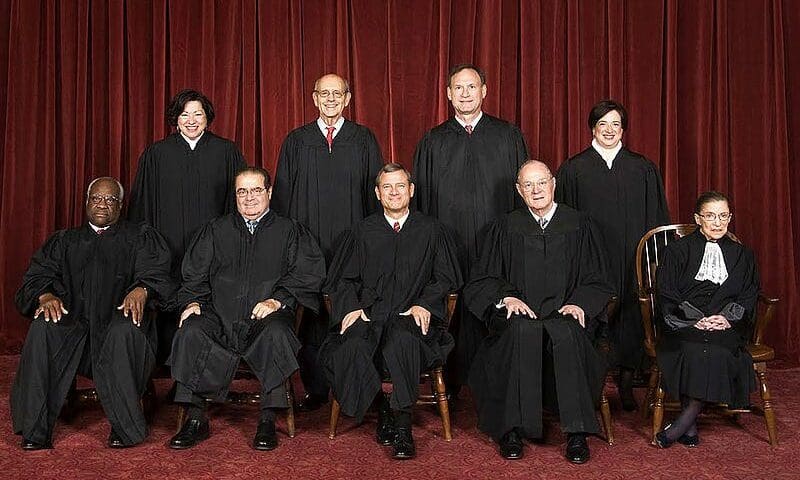

On Monday the Supreme Court heard oral arguments in Friedrichs v. California Teachers Association, a lawsuit that targets Abood v. Detroit Board of Education, a nearly 40-year cornerstone of labor-management relations. At stake is the principle that, although public employees who don’t join a union cannot be required to pay for the union’s political activities, they can be charged an “agency” or “fair share” fee to pay for the services that the union is required by law to provide all members.
Capital & Main asked labor attorney and Century Foundation fellow Moshe Marvit, who studied Monday’s transcripts, for his assessment of the case, whose ruling is expected by June.
Capital & Main: Were there any surprises in Monday’s arguments?
Moshe Marvit: There had been some hope that [Justice Antonin] Scalia might be a little bit more open to California’s and the union’s arguments,
» Read more about: Moshe Marvit’s Six “Friedrichs” Takeaways »
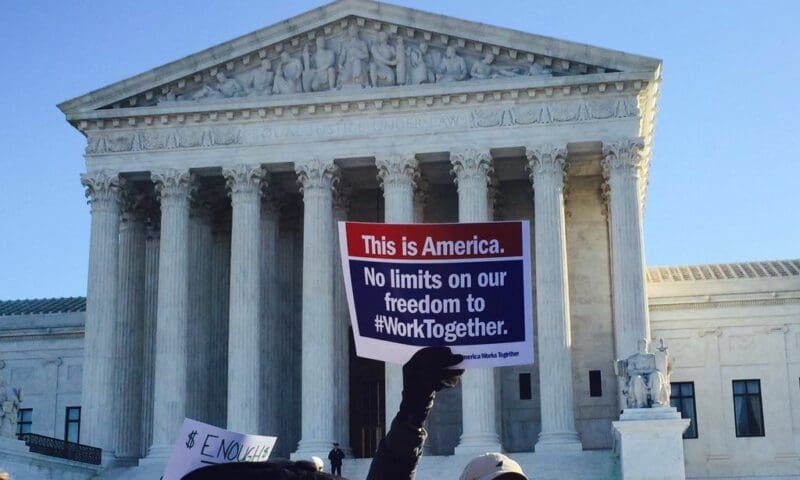

Friedrichs v. California Teachers Association, the latest struggle over workers’ rights, a case whose oral arguments were heard Monday by the U.S. Supreme Court, clearly means different things to different groups. The passionate rhetoric around Friedrichs, and most of its proponents’ legal arguments, have focused on individual liberties and freedom of speech. “Paying fees to a union should not be a prerequisite for teaching in a public school,” Harlan Elrich, one of the plaintiffs, wrote in the Wall Street Journal. “No one in the U.S. should be forced to give money to a private organization he or she disagrees with fundamentally.”
But the main goal of those funding the case is, likely, to reshape the political landscape by neutralizing the power of organized labor. The broad impact of a successful suit will be to drain the union of dues,


Read transcript of today’s Supreme Court oral arguments in Friedrichs v. CTA
Last July, 2,000 conservatives and Tea Party activists gathered in Las Vegas for the annual FreedomFest, which featured GOP presidential frontrunners Donald Trump and Marco Rubio. But it was a fourth grade public school teacher from Orange County named Rebecca Friedrichs who promised the far right a prize that neither Trump nor Rubio could offer. Friedrichs and nine other California school teachers are part of a lawsuit now before the U.S. Supreme Court that could deliver a severe blow to the nation’s public-sector unions. It would radically upend the political power of labor — and also, conservatives hope, of the Democratic Party — across the United States.
Friedrichs’ message last summer was the same as she has told audiences elsewhere: “Supposed [union] benefits are not worth the moral costs.”
The “moral dilemma,” she claims,
» Read more about: Could Friedrichs v. CTA Be Labor’s ‘Citizens United’? »


“It’s raining! It’s pouring! Evictions are soaring!” chanted the small but defiant crowd on the corner of Vermont and Franklin avenues in Los Angeles’ gentrifying Los Feliz neighborhood. Holding signs reading, “Honk if your rent is too high” and “Where will you go when you can’t afford your neighborhood?” the demonstrators had come to protest the Ellis Act eviction of the residents of 1655-65 Rodney Drive from their 12 rent-stabilized apartments.
Evictees brought piñatas emblazoned with the names of their landlords.
Enacted in 1985, the Ellis Act provides a way for landlords to get out of the rental business other than selling their properties. Under this law, a landlord can evict an entire property’s residents with 120 days’ notice for most tenants, or a full year’s notice for senior citizens and disabled tenants. If the landlord tries to re-rent the apartment within five years,


In the Public Interest is happy to be kicking off 2016 with good news. Pushed by students and workers, the University of California has announced it will divest from private prison companies such as Corrections Corporation of America (CCA) and the GEO Group.
This is yet another win for criminal justice reform—Columbia University divested from CCA last summer. The private corrections industry, which makes more profit when more people are in the system, is an obstacle to the changes many of us want to see.
The industry doesn’t want change. An executive with GEO Group, the second largest private prison operator in the U.S., recently boasted that the country would continue to “attract” crime. He shared the “good news” to investors: “The reality is, we are a very affluent country, we have loose borders and we have a bad education system.”
Private prison companies claim to do a better job more cheaply,
» Read more about: University of California Divests from Private Prison Industry »
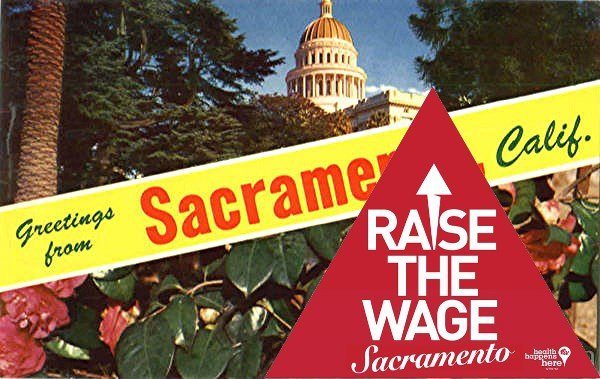

On December 21, 2015, Organize Sacramento and Raise the Wage Sacramento filed documents with the city clerk to gather 21,503 valid voter signatures necessary to place a minimum-wage measure on this year’s November ballot. The measure would boost the city’s minimum wage to $15 by 2020, peg it to the Consumer Price Index and let workers earn paid sick leave.
Activists: City-approved wage hike is too low and too slow.
Two months earlier the city council, on a 6-3 vote, had approved a minimum-wage ordinance bump to $12.50 by 2020. For Organize Sacramento and Raise the Wage Sacramento, though, that was too low and slow, spurring the current ballot drive for a $15 minimum wage. The Democratic Party of Sacramento County, Restaurant Opportunities Center United , Capital Region Organizing Project and Center for Workers’ Rights also back the measure.
» Read more about: Sacramento’s Minimum-Wage Rumble Begins »


Fred Hiatt, the Washington Post’s editorial page editor, has fired columnist Harold Meyerson, one of the nation’s finest journalists and perhaps the only self-proclaimed socialist to write a weekly column for a major American newspaper during the past decade or two.
At a time when America is experiencing an upsurge of progressive organizing and activism — from Occupy Wall Street, to Black Lives Matter, to the growing movement among low-wage workers demanding higher minimum wages, to Bernie Sanders’ campaign for president — we need a regular columnist who can explain what’s going on, why it’s happening, and what it means.
More than any other columnist for a major U.S. newspaper, Meyerson provided ongoing coverage and incisive analysis of the nation’s labor movement and other progressive causes as well as the changing economy and the increasing aggressiveness of big business in American politics.
» Read more about: Washington Post Sacks Columnist Harold Meyerson »
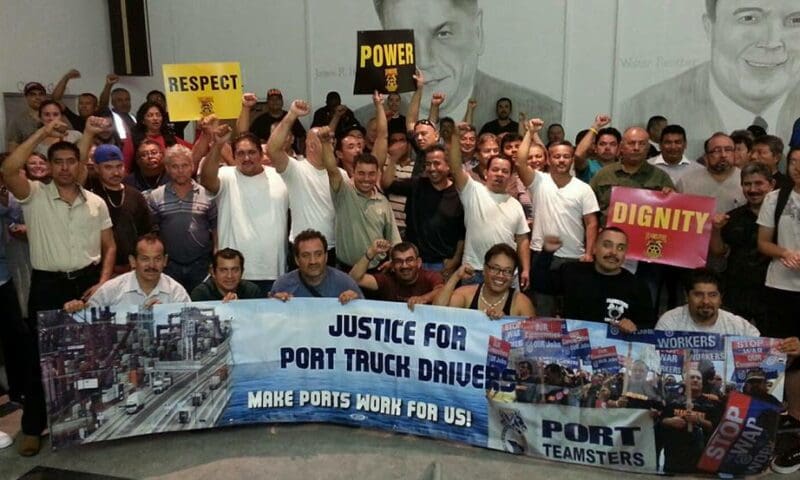

Historians may remember 2015 as the year of the minimum wage — and for good reason. Twenty-one states and multiple cities raised the minimum wage in the past 12 months, scarcely two years after the “Fight for $15” was dismissed as a pipe dream by some observers. The past year also saw other major advances for working Americans. Here are ten of the most important:
1) Bottoms Up: L.A. Minimum Wage Increase Caps Historic Year for Low-Wage Workers
This summer the City of Los Angeles enacted the most far-reaching minimum wage increase of any municipality in America. L.A. County did the same soon after, which means that over the next five years nearly one million people will see their pay rise to $15.37 an hour. They will also be covered by some of the strongest wage theft protections in the nation, ensuring they actually get the increases mandated by law.


The end of the year is traditionally a time for reflection, and in that spirit we bring you “Our Moment,” a short video that reflects on some of the defining moments in the social justice movements of our time.
The video, featuring words and performance by poet Mayda de Valle, first premiered at the Equity Summit 2015 in Los Angeles, and is now being widely shared on social media. It was produced for PolicyLink by Wyatt Close and Big Bowl of Ideas and directed by Jon Sautter.
Info about Equity Summit 2015 can be found here.


Love. Joy. Peace. That’s the message of the season. From carols to holiday cards to street signs, even shopping mall windows. These words hover next to the pervasive images encouraging us to buy, but somehow they persist despite the maze of mercantile messages, because they are the deep longings of human beings.
“No justice, no peace!” is what workers and activists often chant on picket lines. It turns out that without climate justice, we will also have no world peace. A recent Los Angeles Times story on El Niño and its potential “long-distance” or “teleconnected” effects quoted researchers arguing that “it doubles the risk of war in much of the Third World.”
Our military accounts for 80 percent of all the fossil fuels consumed by the U.S. government.
Peace activists have long identified war and the preparations for it as a major source of human-caused climate change.
Sebastian Alonzo graduated into “journeyman” status a couple of Fridays ago at the Iron Workers union hall in Norwalk. The 26-year old, who struggled to make it out of high school, completed the five-year training program and now will make top wage – about $33 an hour – in his trade.
“It’s the best achievement I’ve accomplished in my life,” he said, pointing out that his family came there that night to cheer him on.
As part of the graduation ritual, Alonzo and 35 other new journeymen stood in front of a packed audience whose members had traveled from across Los Angeles and Orange Counties to watch the proceedings. The graduates this night included men and women, whites, Latinos, African Americans and Asians. The group – as the cliché goes – looked like America.
To embrace someone as a brother or a sister is to incur obligations that are not easily discarded. » Read more about: Finding Grace at Local 416 »


Get this. In some states, charter school operators can purchase school buildings from public school districts — using taxpayer money. That’s right. The public pays twice for a building it no longer owns.
This scheme and many others are detailed in the National Education Policy Center’s new research brief on charter school policies. Through a study of policies from across the country, Bruce Baker and Gary Miron reveal how many charter operators use existing laws to profit from the privatization of public assets.
Their conclusion: Many current policies allow new actors into public education who skim profits from the system, pocketing money that might otherwise be spent on direct services for children.
These policies have serious costs. In Florida for example, a recent analysis by the Associated Press found that now-closed charter schools in 30 school districts had received more than $70 million in taxpayer money for capital needs.
» Read more about: How Charter Schools Skim and Scam Public Money »
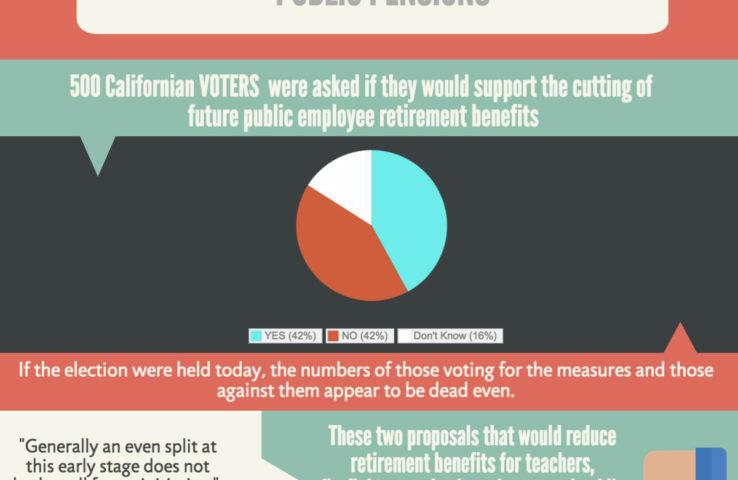
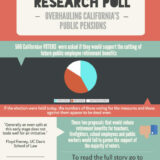
See Dan Braun and Bill Raden’s report on the Capital & Main poll.
Read other Capital & Main stories on pension-cutting ballot proposals in California.
» Read more about: Infographic: Public Pension Ballot Proposals' Tepid Support »
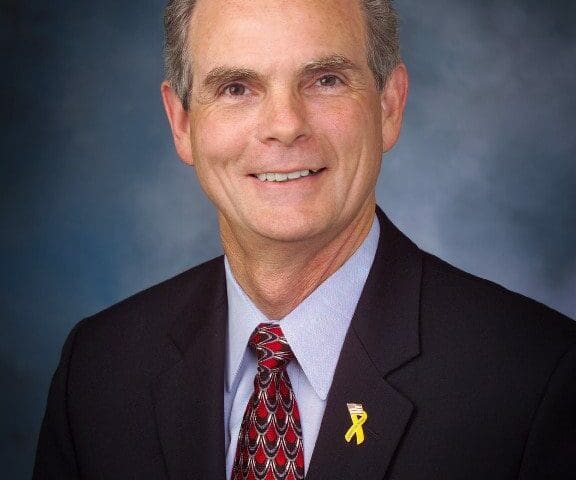

Chuck Reed today declined to address the findings of a Capital & Main poll that showed weak support for two Reed-created ballot initiatives aimed at reducing pension benefits for California’s public employees. If either measure receives the necessary number of petition signatures to be placed on the 2016 ballot, it will face fierce opposition from organized labor.
The poll, conducted by David Binder Research, was released yesterday and showed that if an election were held today, the two measures would win between 40 and 42 percent of the vote. The survey sampled 500 likely voters and has an error margin of plus or minus 4.4 percent.
“I never make statements based on other people’s polling,” Reed told Capital & Main. “Especially in a political environment. We’ll make our decisions based on our own polling.”
Drafted by Reed, a former Democratic San Jose Mayor, and former Republican San Diego City Councilman Carl DeMaio,
» Read more about: Chuck Reed: No Comment on Weak Ballot Polling Numbers »
Ron Miller, the head of the Los Angeles Building Trades Council, says that it is a “ritual” for trades workers to drive around Los Angeles surveying the jobs they have worked on.
Virtually every person I’ve talked to who is currently building the Wilshire Grand Center tower in downtown Los Angeles plans to bring their friends and family members to the building once it is finished. Electrician Anthony Sotelo wants to book his mother into the Wilshire Grand’s hotel for at least one night so he can switch on the lights that he wired to make sure they turn on.
“You take pride in your work by showing your family what you have built,” he says.
One of the delights of completion is the possibility of taking material and psychological pleasure in what you have created, the ability to tell a full story that reveals the daily successes as well as the discords of a difficult project.
» Read more about: L.A. Construction Site: The Satisfactions of Completion »


A pair of potential ballot initiatives written to overhaul California’s public pensions could face a rough road, according to a new poll.
The results from a Capital & Main-David Binder Research poll of 500 likely voters shows that if the election were held today, the numbers of those voting for the measures and those against them appear to be dead even. Those numbers are not what pension-reduction advocates had hoped for going into the 2016 election cycle.
Drafted by former Democratic San Jose Mayor Chuck Reed and former Republican San Diego City Councilman Carl DeMaio, the so-called Voter Empowerment Initiative, and its sibling, the Government Pension Cap Act, received their official summary language (though not their official titles) from the state attorney general last week. Low numbers and lack of support among DeMaio’s fellow Republicans had already forced the pair to abandon a previous effort,
» Read more about: Breaking News: Poll Shows Pension Ballot Measures Already in Trouble »